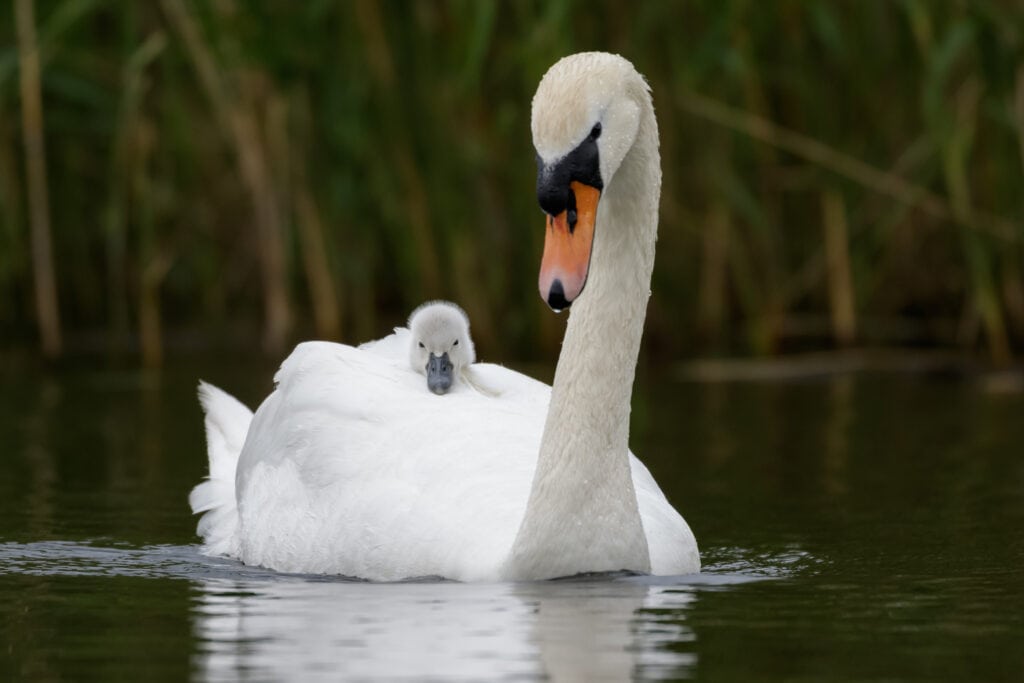Have you ever heard the fun fact that all of the swans in England belong to the queen? If not, then it may surprise you even more to learn that this is true. Queen Elizabeth II’s recent death means that the tradition has been inherited by her son, King Charles III. This tradition dates back 800 years to a time in which the Mute Swans of Britain were valuable commodities, their meat was a treasured meal at royal feasts. To prevent others from stealing or laying claim to the royal family’s swans, it was established that any unmarked swan in England was the property of the Crown. This meant that swan owners were required to mark their swans to prove their ownership.
Related Article: Limpkins Spotted in Pennsylvania and Colorado
Swan meat may not be the commodity that it used to be, but the tradition of royal swan ownership persists in the form of the annual “Swan Upping.” This is a summer tradition wherein royal “Swan Markers” row up the River Thames and measure and count all of the new young cygnets. A few very old British companies who lay claim to some of the marked swans also take part in the tradition.
Swan Upping is not nearly as important to maintaining the power and property of the royal family as it once was. This is especially true since the killing of swans was banned entirely in the 1980s, meaning that those who might still want to eat them are prohibited from doing so. Despite this, the tradition has taken on a new ecological purpose. It is an opportunity to assess the size and health of the swan population of the Thames.
Last year, this tradition yielded some unhappy results, with participants reporting many swans deceased form the bird flu outbreak which continues to ravage Europe and much of the world. this year, the Swan Upping is especially dire. Counters recorded 94 cygnets this year, compared to 155 last year. While not the worst year for the swans of the Thames, it is a markedly dramatic 40% decline.
The Swan Markers did report that the cygnets and swans that were counted and examined appeared to be in good health. While this royal tradition may seem eccentric, it is a valuable opportunity to examine the effects of bird flu and other hazards on British waterways and their avian inhabitants. Here’s hoping that Charles III will own many more swans in the future, as bird populations weather the threat of bird flu and begin the difficult process of recovery.
Popular Article: UC Berkeley Study Examines Hummingbird Alcohol Consumption

